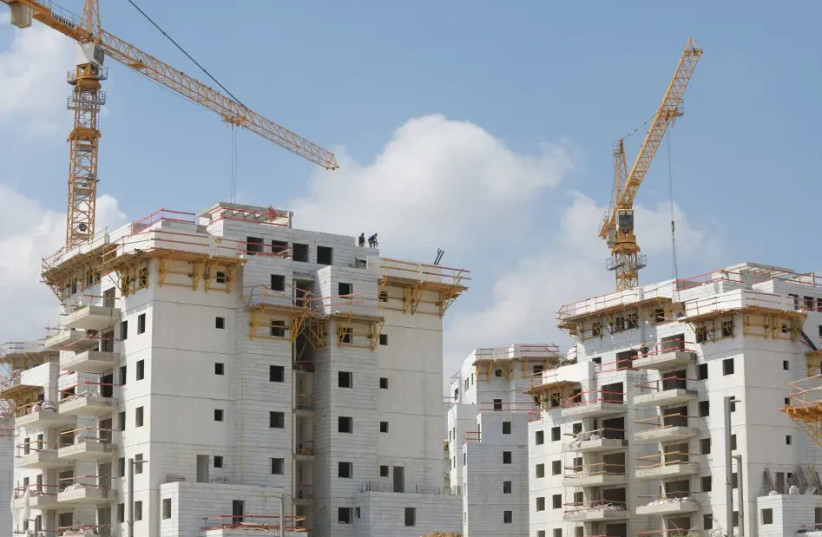The main short-term impact of Turkey sanctions on the Israeli economy could be felt in the construction industry, according to Manufacturers Association of Israel president, Dr Ron Tomer.
Turkey's Trade Ministry announced last week that it would restrict exports of a wide range of products to Israel until a ceasefire is declared in Gaza.
It said the measures would apply to the export of products from 54 different categories, including iron, marble, steel, cement, aluminum, brick, fertilizer, construction equipment and products, aviation fuel, and more.
Turkey's trade sanctions may impact Israeli economy
“Turkey has taken larger and larger pieces of many industries in Israel, including construction,” said Tomer.
"Israel has the ability to produce almost all of what Turkey sells to it, but doesn't have the lines of production to do so," he said. He blames this on Israeli dependence on lower-priced Turkish products entering the Israeli market and causing local factories to close. Israel currently has two remaining steel factories and one cement factory, according to the association.

While the impacts of sanctions would likely be felt in Israeli construction, we are "lucky," said Tomer sarcastically, because the war has caused drastic slowdowns in Israel's construction industry. "Construction has been weak recently because there are no Palestinian workers," he explained.
Because of this, Tomer thinks that Israeli industries will be able to cover the gaps left by Turkish imports until construction recovers.
Tomer is more interested in what will happen after the war. Turkey uses bad practices, such as underpaying workers and failing to uphold environmental protection measures, to lower prices and move in on more and more of the Israeli market, according to Tomer. “This is how they wipe out local Israeli industry and hurt the independence of our production,” he said.
Tomer called on measures to be put in place to combat this loss of independence and encourage local production, such as government restrictions on purchases from Turkey.
Economy and Industry Minister Nir Barkat also responded to the sanctions, saying that his ministry “will help, and is working to find alternatives to [Turkish imports] by increasing local production, and imports from alternative countries.”
Turkey’s largest export to Israel, as of 2022, was iron and steel which made up 18.5% of its exports to Israel, to the tune of around $1.29 billion, according to MIT’s Observatory of Economic Complexity. Cement is also a major export and makes up around 3% of Turkish exports to Israel, to the tune of $234 million, as of 2022, according to the OEC.
Other top products among those imported to Israel from Turkey are cars, which make up around 5% of imports from the country, and jewelry, which is around 3.7% of imports.
Reuters contributed to this report.
